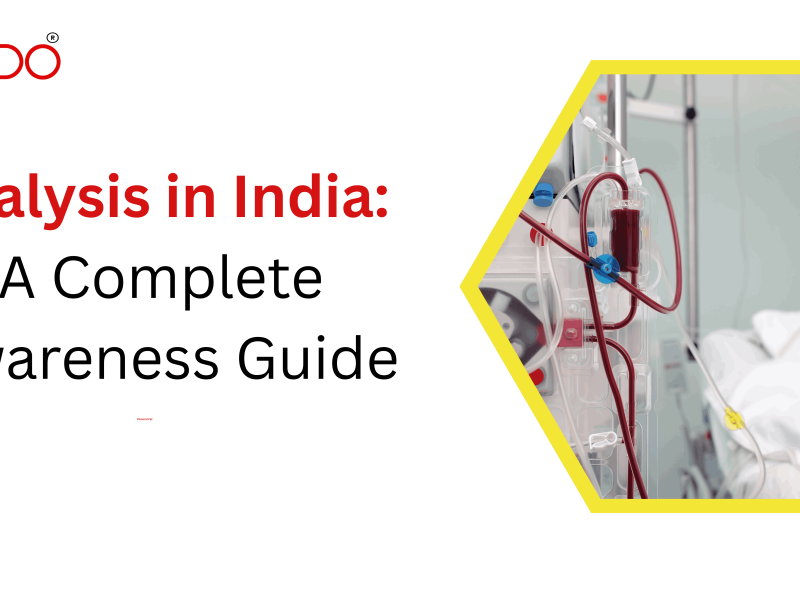Welcoming a newborn into the world is one of life’s most joyous occasions. Along with love, care, and nourishment, one of the most important gifts you can give your baby is protection against life-threatening diseases — and that begins with timely vaccinations. In India, where preventable infections still pose serious public health challenges, immunization plays a vital role in ensuring a healthy start for every child.
To address this need, the Government of India has implemented the Universal Immunization Program (UIP), offering a series of free, government-approved vaccines to protect children from a range of dangerous illnesses such as tuberculosis, polio, diphtheria, hepatitis B, measles, rubella, and more. These vaccines are carefully scheduled from birth up to the age of 16 years to help the child’s immune system build strong, long-lasting defenses.
This comprehensive guide will walk you through the complete list of newborn vaccinations approved in India, their recommended schedule, purpose, and key information for parents — ensuring your baby gets the best start in life through safe and timely immunization.
Why Are Vaccinations Important for Newborns?
Newborns are born with immature immune systems, making them vulnerable to various infections. Vaccines help:
-
Develop immunity by stimulating the immune system
-
Prevent life-threatening diseases like tuberculosis, polio, diphtheria, etc.
-
Control the spread of communicable diseases in the community
-
Ensure healthy physical and mental development of the child
Vaccination Schedule as per Government of India (UIP)
The Universal Immunization Program (UIP) offers free vaccines against 12 life-threatening diseases:
-
Tuberculosis (BCG)
-
Poliomyelitis (Polio)
-
Pertussis (Whooping Cough)
-
Measles
-
Rubella
-
Pneumococcal infections (PCV)
-
Japanese Encephalitis (in endemic areas)
National Immunization Schedule (NIS): Birth to 5 Years
Here is a detailed table of the recommended vaccination schedule as per the Ministry of Health & Family Welfare, Government of India (2025):
| Age | Vaccine | Route | Site |
|---|---|---|---|
| At Birth | – BCG (Bacillus Calmette-Guerin) – OPV-0 (Oral Polio Vaccine) – Hepatitis B-0 |
IM, Oral | Left arm, Mouth, Thigh |
| 6 Weeks | – Pentavalent-1 (DPT + Hep B + Hib) – OPV-1 – Rotavirus-1 – IPV-1 (Inactivated Polio Vaccine) – PCV-1 (Pneumococcal) |
IM, Oral | Thigh, Mouth |
| 10 Weeks | – Pentavalent-2 – OPV-2 – Rotavirus-2 |
IM, Oral | Thigh, Mouth |
| 14 Weeks | – Pentavalent-3 – OPV-3 – Rotavirus-3 – IPV-2 – PCV-2 |
IM, Oral | Thigh, Mouth |
| 9-12 Months | – Measles-Rubella (MR-1) – JE-1 (only in endemic districts) – PCV Booster |
Subcutaneous, IM | Arm, Thigh |
| 16-24 Months | – MR-2 – DPT Booster-1 – OPV Booster – JE-2 (if applicable) |
IM, Oral, SC | Arm, Mouth |
| 5-6 Years | – DPT Booster-2 | IM | Arm |
| 10 Years | – Td (Tetanus and Diphtheria) | IM | Arm |
| 16 Years | – Td | IM | Arm |
Explanation of Key Vaccines
1. BCG (Bacillus Calmette-Guerin)
-
Disease Prevented: Tuberculosis (TB)
-
Given at: Birth (within 24 hours)
-
Dose: 0.1 ml intradermally
-
Site: Left upper arm
-
Notes: A small scar usually forms at the injection site.
2. OPV (Oral Polio Vaccine)
-
Disease Prevented: Poliomyelitis
-
Given at: Birth, 6, 10, 14 weeks, 16-24 months
-
Dose: 2 oral drops
-
Route: Oral
-
Notes: Part of India’s effort to remain polio-free.
3. Hepatitis B
-
Disease Prevented: Hepatitis B virus infection
-
Given at: Birth, 6, 10, 14 weeks (in Pentavalent)
-
Dose: 0.5 ml
-
Route: Intramuscular
-
Site: Anterolateral thigh
4. Pentavalent Vaccine
-
Diseases Prevented: Diphtheria, Pertussis, Tetanus, Hepatitis B, Hib
-
Given at: 6, 10, and 14 weeks
-
Dose: 0.5 ml
-
Route: IM
-
Notes: Replaced DPT, Hep B, and Hib monovalent vaccines.
5. IPV (Inactivated Polio Vaccine)
-
Disease Prevented: Polio
-
Given at: 6 and 14 weeks
-
Route: IM
-
Notes: Administered along with OPV for better protection.
6. Rotavirus Vaccine
-
Disease Prevented: Diarrhea due to Rotavirus
-
Given at: 6, 10, and 14 weeks
-
Route: Oral
-
Dose: 5 drops (varies by brand)
-
Notes: Reduces infant mortality due to diarrhea.
7. PCV (Pneumococcal Conjugate Vaccine)
-
Disease Prevented: Pneumonia, meningitis, sepsis
-
Given at: 6 and 14 weeks, booster at 9-12 months
-
Route: IM
-
Notes: Rolled out under UIP in high-burden districts first.
8. Measles-Rubella (MR) Vaccine
-
Disease Prevented: Measles and Rubella
-
Given at: 9-12 months, 16-24 months
-
Route: Subcutaneous
-
Notes: MR campaign launched nationwide in 2017.
9. DPT Booster
-
Disease Prevented: Diphtheria, Pertussis, Tetanus
-
Given at: 16-24 months and 5-6 years
-
Route: IM
-
Dose: 0.5 ml
10. Japanese Encephalitis (JE)
-
Disease Prevented: Japanese Encephalitis
-
Given at: 9-12 months and 16-24 months (in endemic districts only)
-
Route: Subcutaneous
11. Td (Tetanus and Diphtheria)
-
Given at: 10 and 16 years
-
Notes: Recommended especially for school-going children
Optional Vaccines Recommended by IAP
Some pediatricians recommend optional vaccines (paid) for better protection, especially in urban areas:
| Vaccine | Age | Diseases Covered |
|---|---|---|
| Hepatitis A | 12 months onwards | Hepatitis A |
| Influenza | 6 months, annually | Flu (seasonal) |
| MMR (Measles, Mumps, Rubella) | 9 months, 15 months | Measles, Mumps, Rubella |
| Chickenpox (Varicella) | 15 months | Chickenpox |
| Typhoid Conjugate | 9-12 months | Typhoid Fever |
| HPV (Human Papillomavirus) | 9 years and above | Cervical Cancer (for girls) |
| Meningococcal | 2 years and above | Meningitis |
Note: These are optional and may not be available in all government centers. Always consult your pediatrician before opting.
Tips for Parents:
-
Keep a Vaccination Card: Ensure all doses are recorded properly.
-
Set Reminders: Use phone alerts or apps to track upcoming vaccines.
-
Feed the Baby Before/After: Keeps them calm during the shot.
-
Talk to Your Pediatrician: For personalized vaccine advice.
-
Avoid Missing Any Doses: Delays may increase the risk of infection.
-
Inform About Allergies or Illnesses: Before taking any vaccine.
Conclusion
Vaccinations are a critical part of a child’s early healthcare journey. They don’t just protect individual children from dangerous and potentially life-threatening diseases — they also contribute to building a healthier society by preventing the spread of infections. In India, the government’s Universal Immunization Program ensures that every child, regardless of their socio-economic background, has access to essential vaccines at the right time.
As a parent or caregiver, staying informed about the national immunization schedule and ensuring timely vaccinations is one of the most impactful ways to safeguard your child’s health. While minor side effects may occur, the long-term benefits of immunization far outweigh the risks. Remember, a fully vaccinated child is more likely to grow up healthy, resilient, and protected from diseases that once caused widespread illness and death.
In a world where health challenges continue to evolve, immunization remains one of the simplest, safest, and most effective tools we have. Start early, stay on track, and give your child the protection they deserve — because a healthy future begins today.



